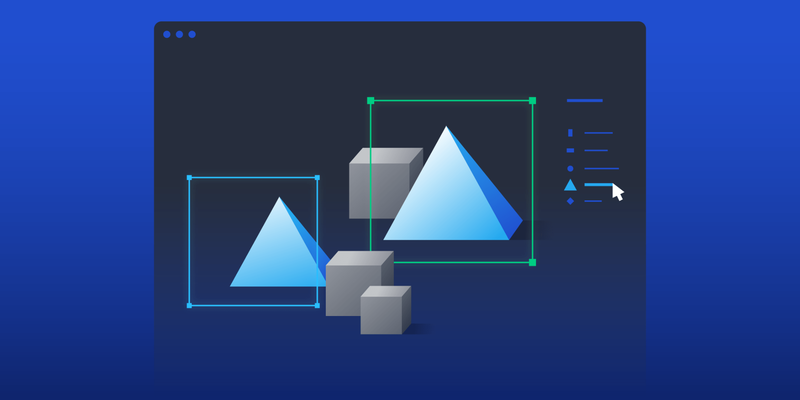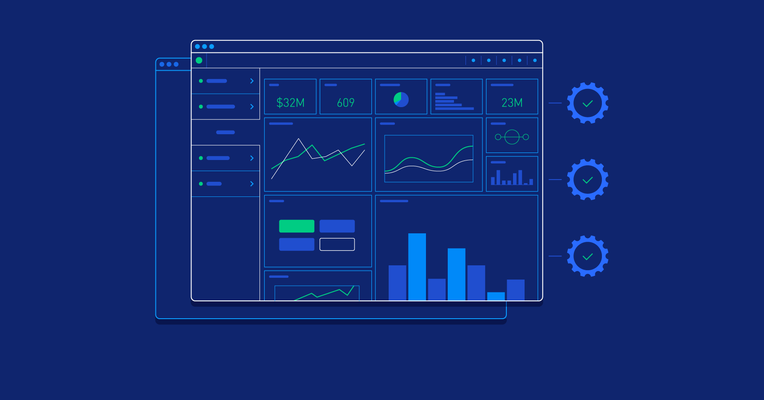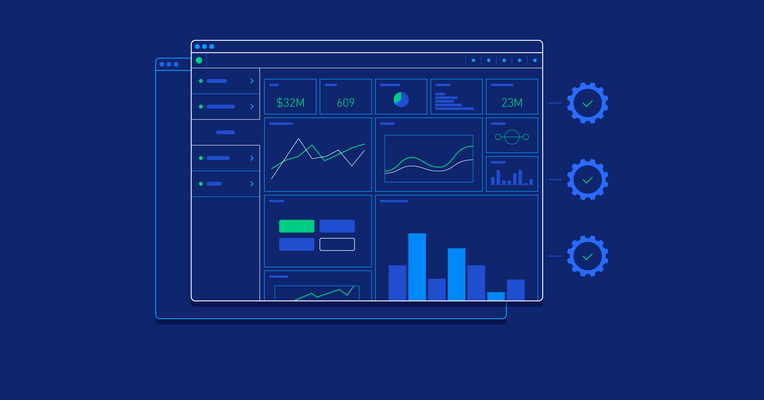
Hire Dashboard Developers
Hire the Top 3% of Freelance Dashboard Developers
Hire vetted dashboard developers on demand. Leading companies choose dashboard freelancers from Toptal for their most important development projects.
No-Risk Trial, Pay Only If Satisfied.
Hire Freelance Dashboard Developers
Mohammad Hossain
Mohammad has 20+ years of experience in building and maintaining large-scale distributed systems, data platforms, and machine learning for a variety of industries. With a master of science degree in computer science from USC, his technical understanding is deeply rooted. Mohammad has excellent communication skills and business understanding. With great interpersonal skills, it is a pleasure to work with him.
Show MoreEmilio Carnicero
Emilio is a computer science engineer and MBA graduate with 18 years of experience helping businesses define and analyze their KPIs across marketing, sales, operations, and finance. He is skilled in SQL and has been working with Tableau and Power BI since 2014, developing all data integration required to feed Tableau and Power BI from any data source. As a Tableau and Power BI consultant and trainer, Emilio can quickly interpret business needs and build insightful dashboards.
Show MoreJhony Chu
Jhony is a data analytics expert with 8+ years of experience leading and implementing end-to-end analytics projects, from data project planning and definition to data extraction, ingestion, cleaning, transformation, and data visualization on cloud platforms.
Show MoreAsha Asha
Asha is a Microsoft Power BI developer in Microsoft Business Intelligence (MSBI) with over five years of experience. She has hands-on data engineering expertise and has worked with many clients in different industries, including retail, banking, and service providers. Asha is experienced in Microsoft SQL Server, Microsoft Power BI, SQL Server Integration Services (SSIS), and SQL Server Reporting Services (SSRS) reporting.
Show MoreDandan Zheng
Dandan is a senior data analyst and data scientist with 5+ years of professional experience and an extensive background in predictive models, AB testing, dashboard, and end-to-end analytics projects. She has worked in the technology, live streaming, social media platform, and oil and gas energy industries, constantly collaborating with cross-functional teams. Besides work, Dandan enjoys traveling and is a big-time computer gamer.
Show MoreEdgar Guzman Cuevas
Edgar holds a bachelor's degree in industrial engineering and a master's degree in data analytics: This is why he enjoys making sense of data. As a business analyst at Toptal, he's developed support KPIs that helped track support operations and created a repository of dashboards, amongst other contributions. As an associate program manager at Uber, Edgar defined support processes to be executed by 500+ support agents across Latin America and managed three lines of business.
Show MoreNabeel Ahmed
Nabeel is a lead architect with 16+ years of experience in business solution design, development, and delivery across Asia-Pacific. He has extensive development and leadership experience designing innovative solutions and providing motivation, guidance, and up-to-date consultancy services for Microsoft Power Platforms, Dynamics 365, Pega, Nintex, and UiPath. He engages directly with clients, helping them define their needs and leading teams to drive the shared organizational vision and growth.
Show MoreEe Ann Ng
Ee is an of the box thinker with a passion for learning, problem-solving, and overcoming challenges. A good bridge between business and technical teams, she has a solid business acumen, data literacy, and technical skills. Ee has the ability to grasp business processes and operations through exploring and analyzing data in natural sources or warehouses. She is always detail-oriented and a strong advocate of data validation. Quality assurance (QA) checks are always a given.
Show MoreThan Ngo
Than is a full-stack developer with 12+ years of experience in web development and 3+ years leading engineering teams of 3–5 developers. He's successfully delivered scalable, high-quality solutions using microservices and event-driven architectures. Skilled in building high-performance SPAs and designing secure, robust APIs to support modern web platforms, Than also has extensive experience with AWS, Linux-based self-hosted deployments, focusing on security, reliability, and performance.
Show MoreBurak Uyar
Burak is an experienced full-stack data developer with vast experience as a data team manager, senior data engineer, senior data analyst, and data scientist. He is also well-versed in business stakeholder communication, requirements analysis, task prioritization and allocation, and cost and budget optimization related to technical tools and services.
Show MoreUkrit Wong
Ukrit have degrees in data science and MBA with experience in engineering and project management. He has developed in-house software for data analytics, forecasts, and dashboards. Ukrit has also created additional functionalities and extensions for SAP Business One (SAP B1) and connected it with open platforms.
Show MoreDiscover More Dashboard Developers in the Toptal Network
Start HiringA Hiring Guide
Guide to Hiring a Great Dashboard Developer
Dashboard developers enable effective business decision-making by transforming raw data into interactive tools that reveal actionable insights. Whether tracking KPIs, uncovering performance bottlenecks, or visualizing complex datasets, they provide key stakeholders with the right information at the right time. This guide offers practical strategies for assessing, interviewing, and securing top dashboard developers.
Read Hiring Guide... allows corporations to quickly assemble teams that have the right skills for specific projects.

Despite accelerating demand for coders, Toptal prides itself on almost Ivy League-level vetting.









How to Hire Dashboard Developers Through Toptal
Talk to One of Our Client Advisors
Work With Hand-selected Talent
The Right Fit, Guaranteed
EXCEPTIONAL TALENT
How We Source the Top 3% of Dashboard Developers
Our name “Toptal” comes from Top Talent—meaning we constantly strive to find and work with the best from around the world. Our rigorous screening process identifies experts in their domains who have passion and drive.
Of the thousands of applications Toptal sees each month, typically fewer than 3% are accepted.
Capabilities of Dashboard Developers
Dashboard developers design user-focused interfaces, integrate diverse data sources, and build interactive visualizations in tools like Power BI, Tableau, Looker, or custom JavaScript frameworks. Their expertise ensures fast performance, secure access, and business alignment, enabling teams to track KPIs and make informed decisions across platforms.
User-centric Dashboard Interface Design
Multi-source Data Integration
Interactive Data Visualization Development
Back-end Data Processing Logic
Real-time Data Update Implementation
Dashboard Performance Optimization
Cross-platform and Responsive Design
User Authentication and Access Control
Data Visualization Testing and Debugging
Analyst and Stakeholder Collaboration
FAQs
Typically, you can hire dashboard developers with Toptal in about 48 hours. For larger teams of talent or Managed Delivery, timelines may vary. Our talent matchers are highly skilled in the same fields they’re matching in—they’re not recruiters or HR reps. They’ll work with you to understand your goals, technical needs, and team dynamics, and match you with ideal candidates from our vetted global talent network.
Once you select your dashboard developer, you’ll have a no-risk trial period to ensure they’re the perfect fit. Our matching process has a 98% trial-to-hire rate, so you can rest assured that you’re getting the best fit every time.
To hire the right dashboard developer, it’s important to evaluate a candidate’s experience, technical skills, and communication skills. You’ll also want to consider the fit with your particular industry, company, and project. Toptal’s rigorous screening process ensures that every member of our network has excellent experience and skills, and our team will match you with the perfect dashboard developers for your project.
At Toptal, we thoroughly screen our dashboard developers to ensure we only match you with the highest caliber of talent. Of the more than 200,000 people who apply to join the Toptal network each year, fewer than 3% make the cut.
In addition to screening for industry-leading expertise, we also assess candidates’ language and interpersonal skills to ensure that you have a smooth working relationship.
When you hire dashboard developers with Toptal, you’ll always work with world-class, custom-matched dashboard developers ready to help you achieve your goals.
You can hire dashboard developers on an hourly, part-time, or full-time basis. Toptal can also manage the entire project from end-to-end with our Managed Delivery offering. Whether you hire a dashboard developer for a full- or part-time position, you’ll have the control and flexibility to scale your team up or down as your needs evolve. Our dashboard developers can fully integrate into your existing team for a seamless working experience.
We make sure that each engagement between you and your dashboard developer begins with a trial period of up to two weeks. This means that you have time to confirm the engagement will be successful. If you’re completely satisfied with the results, we’ll bill you for the time and continue the engagement for as long as you’d like. If you’re not completely satisfied, you won’t be billed. From there, we can either part ways, or we can provide you with another dashboard developer who may be a better fit and with whom we will begin a second, no-risk trial.
How to Hire Dashboard Developers
Demand for Dashboard Developers Continues to Expand
Almost every modern business relies on data-driven insights to make strategic decisions and gain a competitive edge. Integrating detailed, custom dashboards into a company’s workflow facilitates effective monitoring of KPIs and operational performance for technical and non-technical stakeholders alike. With an increasing abundance of available data, the global dashboard software market is surging at a compound annual growth rate of 10.8% and is projected to reach $8.06 billion by 2033.
Dashboard developers—often referred to as analytics engineers or business intelligence (BI) developers—balance the technical nuances of engineering challenges with the business requirements of upper-level stakeholders. As a result, hiring the right developer is challenging and consequential: Candidates must be proficient in using visualization platforms (e.g., Tableau, Power BI), integrating data from multiple sources, running high-performance queries on large datasets, and designing intuitive, user-friendly interfaces.
This guide will help you choose talent who can build responsive, scalable, and maintainable dashboards that set your organization on track to achieve its business goals. To achieve faster, more effective business outcomes, we’ll explore how to assess core analytical skills, differentiate junior engineers from technical leaders, and identify complementary skills that align with your project.
What Attributes Distinguish Quality Dashboard Developers From Others?
Dashboard developers design and scale interactive data tools, providing non-technical stakeholders with reliable, up-to-date information. They bridge complex back-end systems with dynamic front-end interfaces, taking raw data as input and producing systems to monitor performance and identify real-time trends. The best candidates will demonstrate a blend of technical, design, and strategic skills that align with your project’s needs.
UX and Data Visualization Design: Technical rigor alone is not sufficient in dashboard design; top-notch developers build visually engaging, strategic, and interpretable user interfaces that elegantly highlight key performance indicators. Dashboards should tell a compelling story with minimal cognitive overhead for the end user. Look for candidates with strong visualization skills and real-world experience applying UX principles (e.g., visual hierarchy, accessibility, and interactivity). They should understand how to use different plots effectively, optimize layouts for desktop and mobile use, and implement features like dynamic filtering so users see the right level of detail for their role.
Database and Performance Optimization: A technical foundation in database and performance optimization prevents dashboards from lagging and breaking, ultimately avoiding user adoption failures. This skill is especially critical for businesses handling large, complex, real-time data. Capable developers understand how to query databases efficiently, handle large data volumes, automate updates from multiple sources, and diagnose bottlenecks. They should possess strong technical and analytical skills, not limited to experience with indexing strategies (e.g., clustered/non-clustered indexes), table partitioning, and writing effective SQL queries.
Business and Engineering Collaboration: Beyond technical and design expertise, a strong candidate also needs soft skills—especially experience speaking the language of both business and development teams. To build effective solutions, developers must understand the underlying models and tools (e.g., Tableau, Power BI, or custom JavaScript) and collaborate with other engineers to troubleshoot issues as they arise. Moreover, they must have a solid grasp of the business domain and requirements to align the data they present with strategic goals and KPIs that satisfy upper-level stakeholders.
Future-proof Problem Solving: The ability to future-proof solutions—looking ahead to anticipate future needs—sets top-tier dashboard developers apart from average engineers. From a technical and design perspective, this means that candidates have a solid track record of building modular, flexible, and extensible dashboards. Look for developers who are comfortable performing tasks like supporting predictive analytics, integrating new data sources, or embedding dashboards into existing enterprise workflows and applications. Developers with this kind of strategic vision design systems to evolve with an organization instead of creating tech debt.
How Can You Identify the Ideal Dashboard Developer for You?
To start your hiring process, you’ll need a clear understanding of your business problem, the tech stack, and the team’s skill gaps. For example, are internal teams struggling with fragmented data? Or do you need to scale existing solutions to many users and improve their usability?
Your organization’s goals and data complexity will inform the developer specialization and seniority required. For example, while some dashboard developers focus on design and user experience, others are more skilled in database optimization and integrations. Junior developers are more cost-effective for clear-cut reporting tasks, like building quick-turnaround dashboards for a sales team. However, mission-critical or enterprise-scale projects often have smaller margins of error, making them more suitable for a senior developer.
Choosing Junior, Mid-level, or Senior Talent
Junior dashboard developers often have less than two years of experience and are best suited to building straightforward dashboards that track KPIs, sales performance, or departmental metrics. They can perform simple tasks like building reports, creating basic visualizations, and applying filters, and should be proficient in common BI platforms (e.g., Power BI, Tableau). While they can connect to structured, prepared data sources (e.g., Excel, CSV, relational databases), junior developers may struggle to navigate more complex datasets or ambiguous requirements (e.g., performance tuning). They are a good match for teams with existing workflows and reporting needs, where data engineering and management are already handled.
Mid-level dashboard developers typically have two to five years of experience and are capable of building responsive, customized, integrated, automated, and moderately complex dashboards. However, their work reaches beyond visualizations as they have broad technical knowledge covering performance optimization and data preparation. On the performance side, they understand tasks like indexing tables, limiting query scope, and optimizing extracts. Their data preparation knowledge encompasses writing SQL queries, using Python libraries (e.g., pandas), and connecting multiple data sources. Though they may not yet be ready to implement enterprise-level architecture, mid-level developers effectively serve businesses with growing data or expanding BI capabilities.
Senior dashboard developers possess over five years of experience, along with strategic vision and technical leadership. These seasoned developers design future-proof, enterprise-scale solutions from scratch, and their solutions can handle high data volumes and real-time updates. Hiring senior dashboard developers is a non-negotiable for mission-critical projects or high-stakes industries like healthcare and finance. Senior developers have expertise that combines database engineering and optimization, cloud deployment (e.g., AWS or GCP), and complex data integrations and visualizations. They may also implement governance features (e.g., for GDPR or HIPAA compliance) or advanced machine learning integrations. Finally, beyond technical expertise, senior developers collaborate closely with team members and stakeholders, mentoring junior engineers, guiding the team on visualization and tool standards, and helping business leaders define KPIs.
Deciding on Complementary Skills
Technical dashboard creation often requires many complementary skills, especially for larger companies or more complex datasets. Data engineering, integrations, and cloud capabilities enhance a candidate’s business impact, allowing them to produce accurate and timely insights.
Data Engineering and ETL: Data engineering is a common skill set that pairs well with dashboard design and is often a necessary strength for mid-level or senior engineers. Candidates versed in Extract, Transform, and Load (ETL) processes can create repeatable workflows to prepare raw data for analysis efficiently. This reduces manual overhead and ensures up-to-date information. They can also validate data, catching missing or duplicate entries and ensuring accuracy. Strong developers should have experience with SQL, Python libraries (pandas or PySpark), or other specialized tools, and be comfortable automating data preparation across various sources (e.g., relational databases, APIs, IoT streams).
Systems Integration and API Development: Dashboards frequently connect to external ERP, CRM, HR, or IoT systems to pull data in and publish APIs, embedding visualizations and insights into other applications. As a result, systems integration and API development experience is often valuable for dashboard developers. They should be skilled with GraphQL and REST APIs, authentication protocols like OAuth 2.0 or JWT, webhooks for event-driven updates, and middleware platforms (when working across complex environments). Moreover, they can design custom integrations in Python, Node.js, or C# when out-of-the-box solutions fall short, ensuring the right workflow for unique business needs.
Cloud and Governance Awareness: Large enterprises require secure, performant, and compliant solutions while serving hundreds or thousands of users. Developers with cloud expertise can leverage autoscaling and serverless compute to reduce costs under high workloads. Look for candidates with experience deploying and managing cloud BI solutions (e.g., AWS QuickSight, Azure Power BI Service) and a deep understanding of cloud storage patterns and query optimization. Additionally, governance skills (e.g., managing access roles, row-level security, and data lineage for auditing) are essential for projects requiring compliance with standards like GDPR or HIPAA.
AI and Automation Capabilities: Companies building modern dashboards increasingly embed AI capabilities, such as natural language queries, anomaly detection, and predictive analytics. Developers with this skill set are prepared to integrate ML model outputs into BI platforms. Automation skills may also help perform tasks like scripting refreshes (for updated data), orchestrating workflows, or surfacing alerts via Slack, Teams, email, or other APIs. Overall, AI and automation abilities enhance a company’s predictive power and proactivity and make insights more immediately accessible to non-technical stakeholders.
How to Write a Dashboard Developer Job Description for Your Project
Your job description should begin with a clear overview of your business needs, the BI tools used, and the required technical skills. For example, are you seeking a senior architect to scale and integrate an enterprise BI platform? Do you need a junior engineer to support an existing team on routine data visualization tasks in Tableau? Address the required competencies in core skill areas like data modeling, visualization, UX design, and performance optimization, and include any relevant complementary skills (e.g., cloud platforms).
To attract the right candidate, use a thoughtful and specific job title reflecting the project scope, such as “BI Data Analytics Architect” or “Senior Business Intelligence Developer (Tableau)”.
What Are the Most Important Dashboard Developer Interview Questions?
Design the interview questions to assess the dashboard developer’s ability to deliver business impact and support decision-making. Consider a candidate’s experience in user interface design, data quality, performance, and API integration. Their answers should balance technical execution with usability considerations and reflect a strong track record of building reliable and accurate dashboards.
Describe a time when you designed a dashboard for executive stakeholders.
This is a good starting point to unpack a candidate’s ability to think about high-level KPIs and inform business decisions. Not all developers will have experience directly interfacing with business leaders. Still, any good dashboard developer should have experience gathering stakeholder requirements, prioritizing critical metrics, and designing solutions around these needs. The answer will vary depending on the domain, dataset, and organization, but you should probe for details on performance and usability considerations. Strong candidates will clearly describe their direct business impacts and how they incorporated user feedback.
How do you optimize performance when working with large datasets?
Companies rely on increasingly larger datasets, and slow dashboards reduce user adoption and increase infrastructure costs. Most mid-level and all senior developers should design solutions with performance as a top priority and provide concrete examples of how they improved load times. A solid answer should mention database-level query optimization (e.g., joins, indexes, partitioning), caching aggregates, and limiting real-time queries where possible. Candidates might also discuss front-end optimizations such as asynchronous loading or minimizing the number of visualizations per page.
How do you validate data accuracy?
It is essential that information in dashboards can be trusted, whether presented to stakeholders, customers, or executives. Look for an answer describing methods such as validating data schemas, implementing automated tests on ETL pipelines, and collaborating with data engineering for quality assurance. Candidates may also suggest automatic monitoring for data anomalies, using version control systems for datasets, and creating strong technical documentation (e.g., data sheets for datasets). Top engineers can describe multiple instances when they proactively caught data errors.
Describe a time when you built a dashboard that required integrating multiple data sources or APIs.
This question tests advanced technical and data engineering skills; integrating disparate systems is a common requirement. Candidates should clearly describe how they performed ETL, specifying their tech stack, error handling, performance considerations, and data validation process. This may include handling inconsistent schemas, performing incremental data loads, or resolving latency issues.
Why Do Companies Hire Dashboard Developers?
Dashboard developers connect business leaders to organizational data and help companies make intelligent decisions. They transform raw data into accurate and intuitive visualizations and actionable insights. Ultimately, they are critical to an organization’s revenue growth, risk reduction, operational efficiency, strategy, and predictive power—bringing a competitive edge to even the most fast-moving markets.
Effective dashboard developers combine technical depth (e.g., database engineering and performance optimization) with design and usability considerations that prioritize key stakeholders. Skills in cloud platforms, automation, and integration can further enhance a developer’s impact by streamlining workflows and reducing costs. Whether seeking a junior engineer for routine reporting needs or a senior developer for complex data management, hiring the right dashboard developer ensures that executives can act quickly and confidently on accurate, up-to-date information.
Featured Toptal Dashboard Publications
Top Dashboard Developers Are in High Demand.























